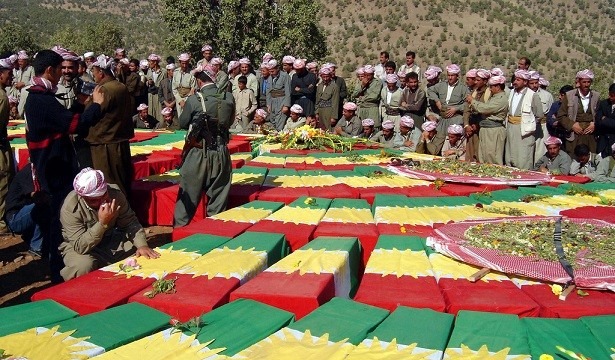As the search for Anfal genocide victims’ remains continues, families face ongoing delays in federal solutions.
In the stark deserts of Iraq, the remains of Barzani victims of the Anfal genocide have been slowly, painfully returned to their homeland. Despite the passage of decades, the families of these victims still await justice and compensation from the Iraqi government.
Karim Kawa, General Director of Martyrs in the Independent Administration of Soran, spoke to Kurdish Globe about the enduring pain of the Barzani community. “The Barzanis, like the people of Germian and Halabja, faced a brutal campaign of extermination,” he said. “They were uprooted from their homeland and subjected to unimaginable horrors in the deserts of southern Iraq.”
The Anfal campaign, which began in the 1980s, saw Barzani villages destroyed, their natural environment devastated, and their people forcibly relocated under strict military control. Many were taken to camps, where they lived under harsh surveillance before being mass-murdered by the Iraqi authorities.
After the fall of Saddam Hussein’s regime in 2003, efforts to locate and repatriate the remains of Anfal victims began in earnest. The first convoy of Barzani remains, consisting of 503 victims, was returned to Kurdistan in October 2005. Since then, the remains of around 600 Barzani victims have been found and returned in stages. The most recent return, on July 30, 2022, saw 100 more victims brought home and buried in a dignified ceremony.
Yet, the quest for compensation continues. “In 2014, a special committee estimated the damages for each victim and submitted a report to the Council of Ministers,” Kawa explained. Despite a seven-point agreement signed between Erbil and Baghdad in 2013, which included provisions for compensating genocide victims, no practical steps have been taken by the federal government to address these claims.
Repeated requests from the Kurdistan Regional Government, totaling nearly $385 billion in estimated damages, have been met with silence from Baghdad. “According to Law No. 5 of 2013 by the Kurdistan Parliament, if the federal government does not respond within the specified time, the regional government is empowered to take measures to secure its financial rights,” Kawa stated.
For the families of the Anfal genocide victims, the wait for justice and compensation is a painful reminder of a dark chapter in their history. Their resilience and determination continue to drive their fight for recognition and reparation.

